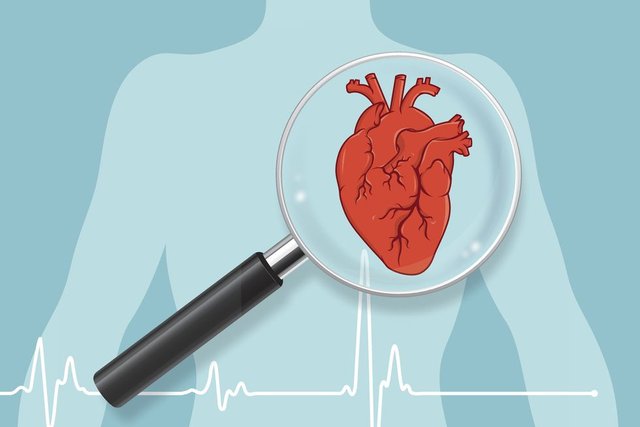
You’re probably all too familiar with the classic “heart attack scene” in TV shows and movies. A man is sitting somewhere in public—typically a restaurant or some loud sporting event—when he suddenly can’t breathe properly, starts shaking, and collapses. It’s dramatic and terrifying, but the movie goes on.
The reality is, events like these do happen in real life and become fatal quickly. Knowing what to do if you witness this type of situation can save someone’s life. The problem is, many people can’t actually identify whether someone is experiencing a heart attack or sudden cardiac arrest—and that makes all the difference.
While they are often used interchangeably, heart attack and cardiac arrest are two distinct conditions, explains Holly Andersen, MD, attending cardiologist at New York Presbyterian Hospital and director of education and outreach for the Ronald O. Perelman Heart Institute. Here’s everything you need to know about how to tell them apart.
What is the difference between cardiac arrest and a heart attack?
The simplest way to differentiate the conditions is to think of a heart attack as a circulation problem (a blocked artery halts blood flow to part of your heart), while cardiac arrest is an electrical issue (an electrical malfunction stops your heartbeat completely).
During a heart attack, an artery that supplies your heart with blood becomes blocked, which could be due to various health issues like smoking, high blood pressure or cholesterol, obesity, lack of exercise, or a poor diet. “All of a sudden the heart is not getting enough oxygen, so that part of the heart starts to die,” explains Dr. Andersen. While the heart does not stop beating completely, the longer it’s left untreated, the greater the damage is.
Cardiac arrest, on the other hand, occurs when your heart’s electrical system malfunctions, which causes an irregular heartbeat known as arrhythmia. This abruptly stops your heart from pumping blood to your brain, lungs, and other vital organs—meaning your chance of survival is slim if you don’t get immediate help.
“In cardiac arrest, 92 percent of people die before even making it to the hospital,” says Dr. Andersen. “We think only about 6 percent of people survive an out-of-hospital cardiac arrest. Even of that 6 percent, we don’t know how many people are restored to a life they had beforehand.”
What are the symptoms of cardiac arrest?
So you know the two are different, but how can you tell them apart as it’s happening right in front of you? First, a heart attack will present very different symptoms compared to cardiac arrest. These include chest pain, discomfort in other areas of your upper body, shortness of breath, cold sweats, or vomiting. These symptoms can be immediate, but typically build up over time and even last for days or weeks before an actual heart attack takes place, according to the American Heart Association.
“Chest pain is still the most common symptom, but women are more likely to present with pain from somewhere else, like their arm, their neck, their back, or a sense of overwhelming fatigue and lightheadedness,” explains Dr. Andersen.
In the case of cardiac arrest, though, you may not feel any symptoms at all until right before it happens. “A cardiac arrest can happen when a seemingly normal-appearing person all of a sudden drops, stops breathing, and stops moving, because the blood has stopped circulating,” says Dr. Andersen. “They might have no symptoms at all, or just a few seconds of not feeling well before it happens. It’s an alarming, sudden event.”
You might be wondering: How do I know they’re not just fainting? If someone faints—say, from feeling lightheaded—they’ll likely go down slowly, will still be breathing, and their skin will be a normal color. But when someone drops due to cardiac arrest, they drop fast, won’t be breathing or moving, and will start turning blue very quickly, says Dr. Andersen.
Hi! I am a robot. I just upvoted you! I found similar content that readers might be interested in:
https://www.prevention.com/health/health-conditions/a20956640/cardiac-arrest/
Downvoting a post can decrease pending rewards and make it less visible. Common reasons:
Submit